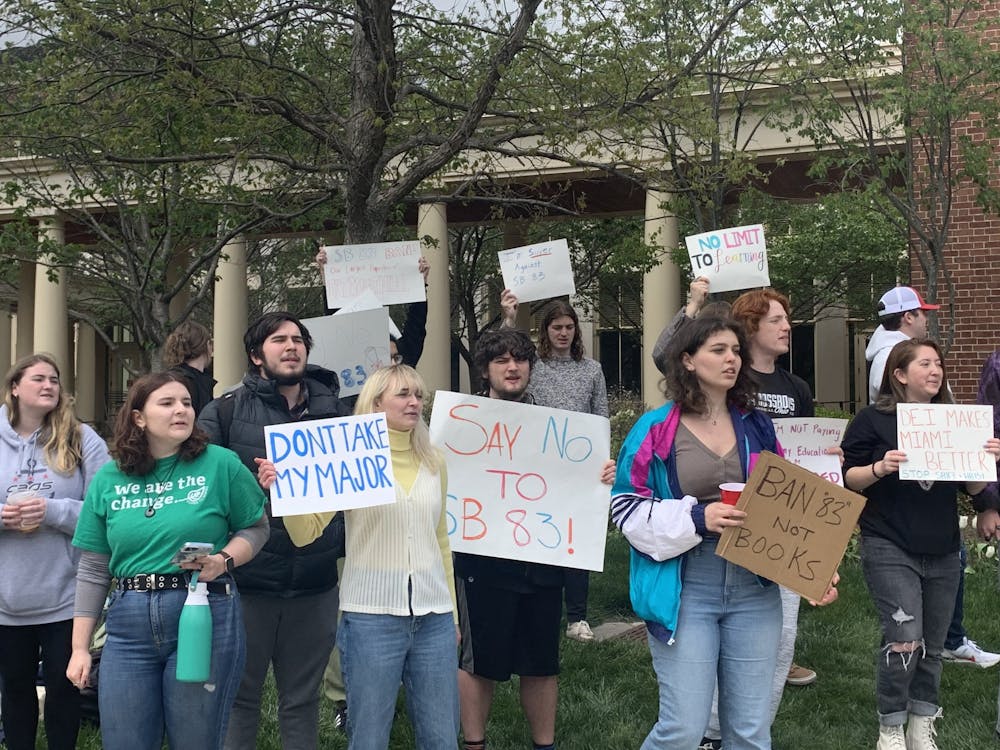Ohio Senate Bill 83 is back to the drawing boards as Sen. Jerry Cirino, R-Kirtland, announced that changes would be made to the bill, which would currently ban faculty striking, bar faculty from discussing “public policy controversies,” and limit diversity, equity and inclusion (DEI) training for students and faculty.
According to the Ohio Capital Journal, Cirino said he has been working with House Higher Education Committee Chair Tom Young, R-Washington Twp., since the summer to make alterations to the bill.
“I can’t publicly disclose [the changes] yet, but I think we’re down to the final two topics that need to be reconciled,” Cirino said Monday in the Capital Journal’s reporting.
Many professors have continuously voiced their strong opinions against the bill’s passage, including Anne Whitesell, assistant political science professor at Miami University. One part of the bill she hopes to see removed is the part labeling issues as “controversial,” therefore removing them from class discussion.
“I’d like to see the whole bill scrapped,” Whitesell said. “However, one of the things that is especially concerning about it is that it labels issues as ‘controversial.’ The whole idea of being in a college classroom is that you should be able to talk about issues that might be uncomfortable and explore new ideas.”
The bill was met with controversy from Miami students and faculty last April shortly after its conception, when students staged a protest against the bill outside of Miami’s Armstrong Student Center. Ashley Reynolds, a sophomore social justice major, helped organize the student-led protest last April against the bill.
Like Whitesell, Reynolds also agrees that the bill is better off scrapped than revised.
“I really don’t think there’s anything in the bill — nor has there ever been anything in the bill — that has been actually good for students or for education,” said Reynolds. “Everything in this bill, whether it’s the ban on teacher strikes, or the controversial issues part, or the part pertaining to relationships with China, all provide their own set of consequences socially and economically for the state.”
The bill would go to the House Higher Education Committee to vote on, then potentially to the floor of the House of Representatives, which will meet next on Nov. 15.




